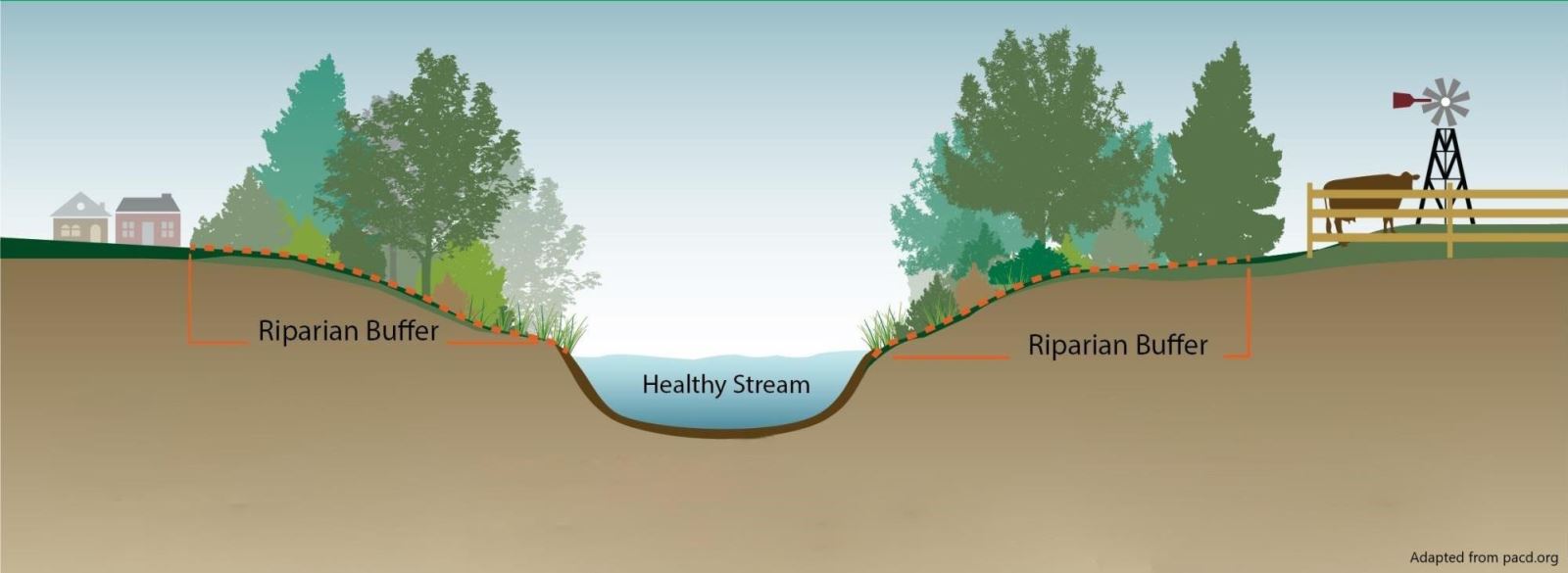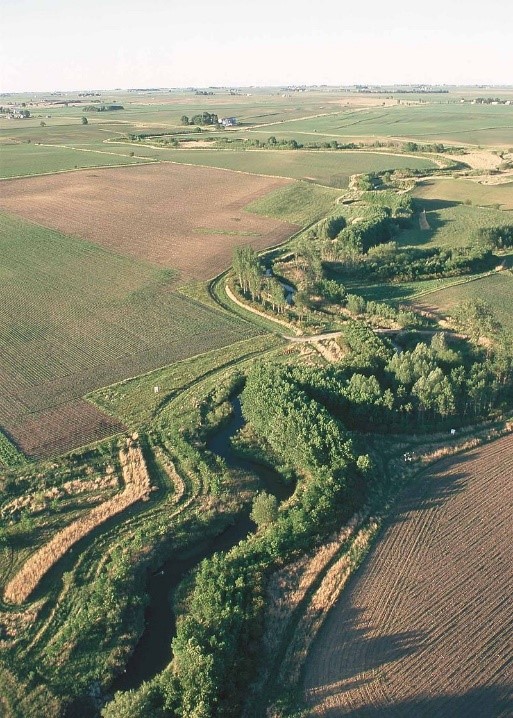This news item expired on Tuesday, June 1, 2021 so the information below could be outdated or incorrect.
Protecting land and water quality are the primary directives of the Buncombe County Soil and Water Conservation District’s (BCSWCD) mission. Protecting the land and water quality go hand in hand. By protecting the land around our waterways, we protect our prime agricultural soils, typically in the floodplain, from being eroded and degraded. In addition, we protect water quality by implementing collection and reuse systems, crop irrigation conversions, and providing livestock watering facilities so that we can fence livestock out of streams.
The ecosystems that line the banks of a creek, stream or river are called riparian zones or riparian buffers. It is often easy to locate a stream from an aerial photograph because the riparian buffer is typically made up of brush and tall trees. When looking at a photograph or the landscape, if you see a line of tall trees or denser brush, it is highly likely that there is a waterway in the center. Riparian buffers provide many services to water quality such as shading streams, filtering out pollutants, stabilizing streambanks and creating habitat.

Above image sourced from Albemarle County.
 Above image sourced from Wikipedia.
Above image sourced from Wikipedia.
Why Protect Riparian Buffers around Streams?
Protecting and encouraging riparian buffers around streams has many wide-ranging benefits:
- Protects streambanks from erosion
- Shades the stream to keep water temperatures cool to support trout and other macroinvertebrates
- Reduces flood damage
- Creates wildlife habitats by creating wildlife corridors
- Filters pollutants from runoff
- Improves water quality
Riparian buffers are nature’s housekeepers for water quality. Establishing, maintaining and encouraging the health of riparian zones helps to ensure our waterways remain clean for our enjoyment, and for the use and enjoyment of local flora and fauna. To learn more about riparian zones and how you can assist in improving water quality, please contact the BCSWCD at (828) 250-4785 or visit some of our partners.
Partners: